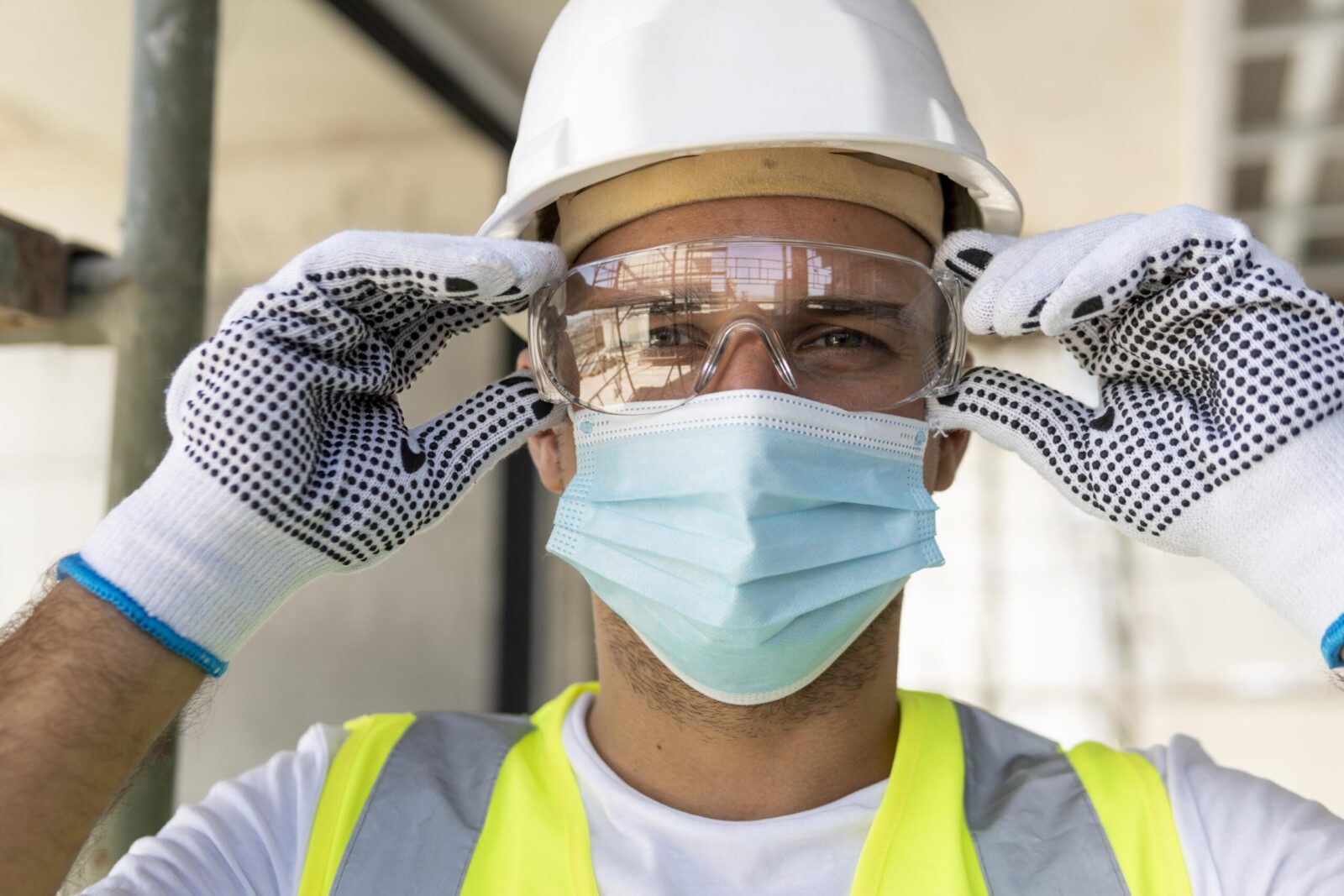
Essential PPE in the Food Industry: What You Need to Know
Overwhelmed by PPE options for food safety? Master your PPE selection for food workers safety with these practical tips.

Get 20€ off on your first order!
Selecting the right protective overalls for your workplace doesn’t have to be difficult. Whether you’re in construction, healthcare, oil and gas, or manufacturing, this guide will help you make an informed decision.
By the end of this article, you’ll understand what features to look for—like material, fit, and protective qualities—and know exactly how to choose the best overalls for your needs.
We’ve also included recommendations from trusted suppliers, such as Qualitex, Portwest, and Unigloves, to help you find the perfect fit. Plus, we’ll guide you on selecting complementary protective gear, like gloves and boots, for complete protection.
Protective Overalls, also called coveralls or boiler suits, are designed to help protect workers from potential workplace challenges like chemical exposure or heat. They come in a variety of materials and styles tailored to meet the needs of different industries.
Protective overalls are commonly used in industries like:
It’s important to also consider the environmental impact of the materials you choose. For instance, reusable overalls are more sustainable than disposable ones, which contribute to waste in industries like healthcare.
The material of the overalls dictates their effectiveness and durability. Key materials include:
Ensure the material matches your specific industry needs. For example, oil and gas workers should opt for flame-resistant overalls like those offered by Portwest. Flame resistance is important in this sector for managing environments with fire risks.
A proper fit ensures both safety and ease of movement. Overalls should not be too tight or too loose. Use the sizing charts provided by suppliers like Qualitex to ensure an accurate fit. European sizes are typically in centimeters, so measure accordingly.
| Size | Chest (cm) | Waist (cm) |
| S | 88-92 | 76-80 |
| M | 96-100 | 84-88 |
| L | 104-108 | 92-96 |
| XL | 112-116 | 100-104 |
To ensure accurate measurements, wrap the measuring tape snugly around the fullest part of your chest and your natural waistline.
Evaluate the specific protective features based on your job requirements:
These are designed for single-use applications, particularly in healthcare or cleanroom environments. Learn more about Disposable Coats.
Made from durable materials, reusable overalls are designed for long-term use. They are suitable for industries like construction and manufacturing.
Lab coats are another form of workplace protection, ideal for laboratory and healthcare settings. Browse Lab Coats.
Protective overalls often pair with gloves for full coverage. For example, in chemical handling, pairing chemical-resistant gloves with overalls ensures a seamless barrier against hazardous substances. Explore Disposable Gloves.
Renowned for high-quality, durable overalls suitable for various industries. View Qualitex Catalog.
Offers flame-resistant options for demanding environments. Explore Portwest Products.
Specializes in disposable options for healthcare and cleanroom use. Browse Unigloves Catalog
We hope this guide has been helpful in navigating the essential factors for choosing the best protective overalls, from material selection to fit and safety features. Whether you’re working in construction, healthcare, or oil and gas, we’re here to support your needs.
Explore the full range of Protective Overalls on Droppe, featuring trusted brands like Qualitex, Portwest, and Unigloves, all just a click away.
For more detailed insights on related protective gear, explore:
Have questions or need advice on finding the perfect overalls? Don’t hesitate to reach out—we’re always here to help ensure your safety and confidence with every purchase.
– The Droppe Team
Disposable overalls are for single use, while reusable ones are designed for long-term use and durability.
Always follow the manufacturer’s care instructions to maintain the protective properties of flame-resistant overalls.
Yes, but make sure to choose overalls with temperature-resistant features suited to your specific work environment.
Yes, high-visibility overalls are available, especially for construction and roadwork jobs.
While some overalls can be altered, it’s best to choose the correct size to ensure maximum protection and comfort.
Thank you! You've signed up for our newsletter.



















Overwhelmed by PPE options for food safety? Master your PPE selection for food workers safety with these practical tips.

Struggling to maintain clear vision in demanding environments? This guide is here to help. By the end, you’ll know exactly...

Electricians across Europe face unique challenges that require reliable safety glasses to ensure both protection and efficiency. Whether safeguarding against...

Overwhelmed by PPE options for food safety? Master your PPE selection for food workers safety with these practical tips.

Struggling to maintain clear vision in demanding environments? This guide is here to help. By the end, you’ll know exactly...

Electricians across Europe face unique challenges that require reliable safety glasses to ensure both protection and efficiency. Whether safeguarding against...
Get 10€ off on your first order!
Save 30% by buying directly from brands, and get an extra 10€ off orders over €100
Save 30% by buying directly form brands, and get an extra 10€ off orders over €100